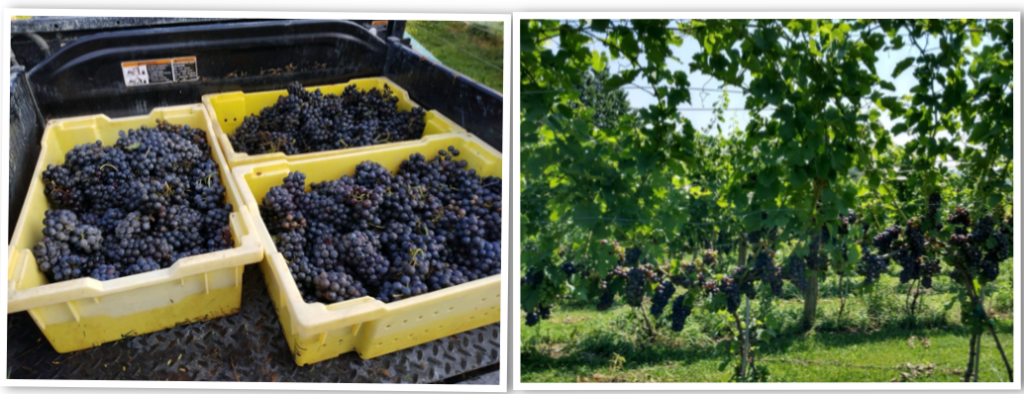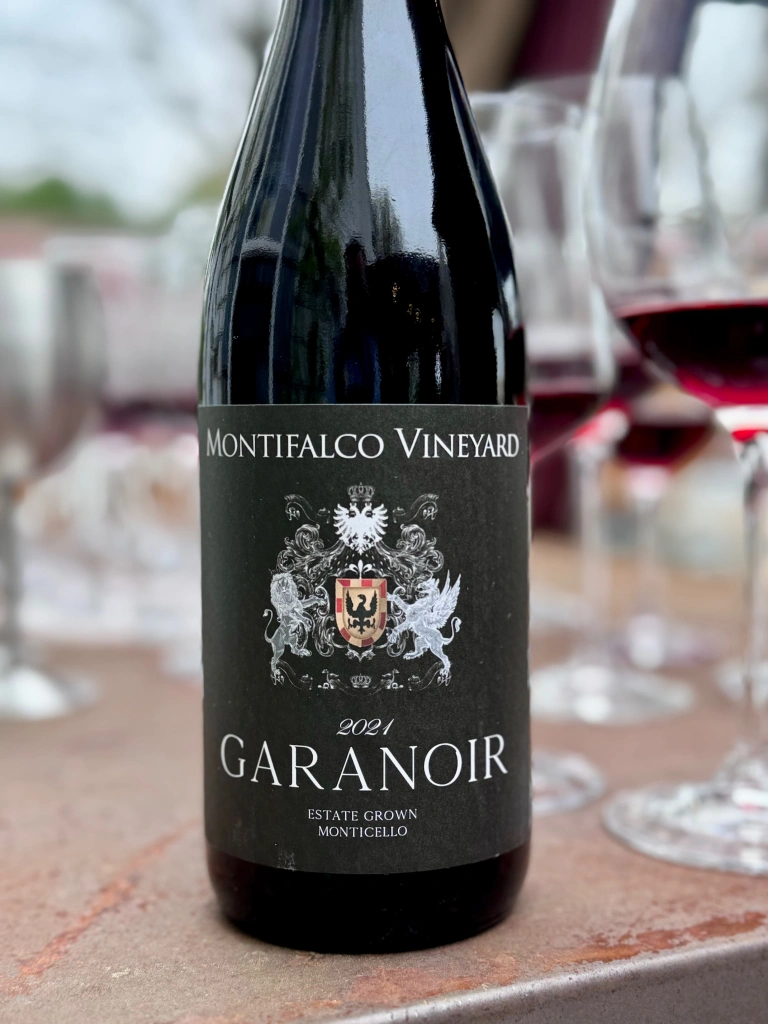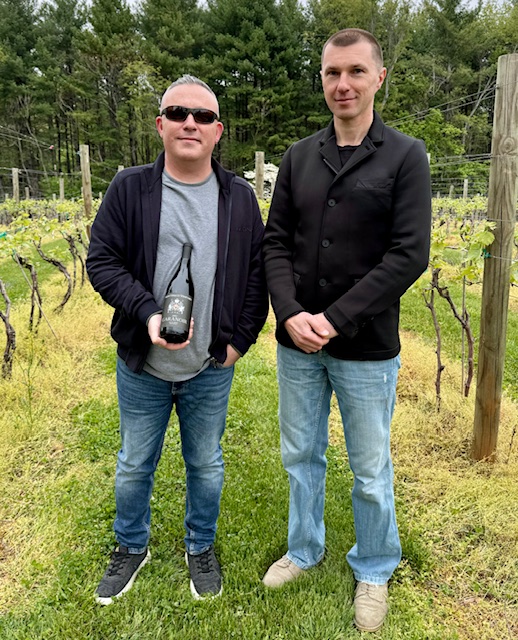The modern Virginia wine industry owes its existence to the sweat equity of pioneers like Dennis and Sharon Horton, Felicia Rogan, Luca Paschina, Gabriele Rausse, Lucie Morton, Jim Law, Lew Parker and many others.
This pioneering spirit of risk taking, experimentation and innovation is still alive and well in the Virginia wine industry.
The next generation of winery owners and winemakers writing the next chapter of the Virginia wine story continue to experiment with new vineyard and cellar practices and new grape varieties.
This weekend, Justin Falco and Dr. Denis Nekipelov, founders of Montifalco Vineyards in Ruckersville, started a new chapter of the Virginia wine story (and American wine) with the release of their 2021 Garanoir.
A cross of gamay and reichensteiner, garanoir is an obscure grape with only about 500 acres planted worldwide, mostly in the Lavaux region of Switzerland on the slopes of Lake Geneva.
It’s similar to pinot noir and gamay in that it produces light red wines with notes of fresh red and dark fruits and spicy and earthy undertones.
Falco was first introduced to wines made from garanoir about 15 years ago during a trip to Switzerland. He learned more about the grape’s reputation for adaptability and resistance to common grape disease during a subsequent trip in 2016, and recognized its potential for Virginia.
“There’s no silver bullet grape but garanoir is more disease resistant than the other grapes we have planted here. It’s the first to ripen and the first grapes we harvest, usually in August, which can be beneficial to avoid storms common in the fall months.”
They planted 3,000 garanoir vines in 2019, the first and only planting of the grape in the United States. And recently planted another 300 garanoir vines with plans for up to 8,000 total.

The work of introducing a new grape to the U.S. is not limited to the vineyard, there’s plenty of regulatory paperwork, too.
Falco had to submit a petition to the Alcohol and Tobacco Tax and Trade Bureau (TTB) to request approval of Garanoir as a legal commercial grape. The TTB approved the new grape as ‘an acceptable grape variety designation for American wines.’
The Montifalco 2019 Garanoir is approachable and delicious, light and fresh. In the glass, it’s brimming with fresh red fruits around a core of baking spice. Cinnamon lingers on the finish. The juice was vinified in concrete. No Oak, thankfully! They produced about 80 cases of 2019 Garanoir.
Congratulations to Justin, Denis and the entire Montifalco team for this important milestone and bringing Garanoir to the U.S.
##########


